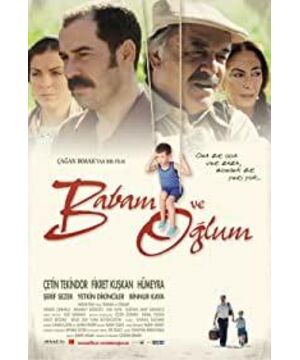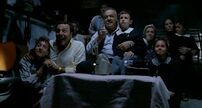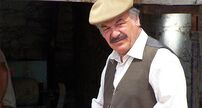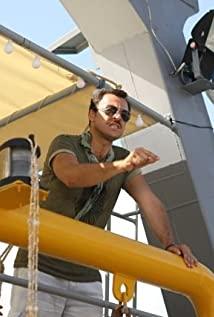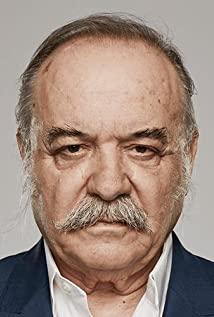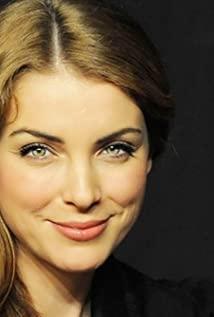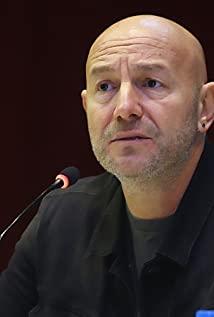by Jin Wei
"Have you seen? No one can hold on to a person who decides to leave." The
authoritarian father died in his son Regrettably, he recalled the scene when his young son ran away 15 years ago. He opened his arms and cried and said: "If I stood here like this at that time, if I opened my arms like this at that time, if I stopped like this at that time He, if I told him not to go, 15 years ago, if I stood here like this, if I stopped Sdlik. If I hugged him like this, if I stopped my son... Then he wouldn’t Leaving." This was the climax of the film. Father tore off his shirt, let out crying, raised his arms, his eyes were dull, and his expression was indifferent. He hissed and cried out: "I killed him!" At this time, Salim (Brother Sadik) yelled and knocked down his father. It was his aunt who said this, saving his father who was in self-blame, on the verge of despair, and on the verge of collapse.
No one can hold on to a person who is determined to leave.
"My Father, My Son" is a simple Turkish family love movie, but it is the wonderful thing of family love that inadvertently touches our hearts.
The protagonist Sadik is a radical young man in Turkey. When he was young, his father wanted him to learn farming in order to manage the farm. But under the influence of radical ideas in college, Sadik became an anarchist, and after graduation he became a leftist journalist in the 1970s. Faced with his father's incomprehension, Sadik ran away from home. His father's roar, mother's cry, and first love's reluctance were all left behind by him. In Istanbul, Sadik began to fight for freedom and the country.
The film began with family life 15 years later. Sadik wrote for newspapers, but was often killed when involved in restricted areas of speech. On the night his wife gave birth, the city he struggled with was empty. In the end, the wife died on the side of the road which was only a five-minute drive away due to excessive blood loss.
The dawn of dawn shone on this poor man, his eyes sluggish and bloodstained, he had a newborn baby in his arms, and his wife's cold body was behind him. Soldiers passing by told him: a coup has taken place in Istanbul. Then, he was imprisoned for political reasons, and was severely beaten in prison. After he was released from prison, he was also ostracized everywhere.
He is full of enthusiasm to fight for the country, but the country doesn't care. In order to find a home for his son, he took his son back to his hometown where he left 15 years ago. As he expected, his father did not like him who came home suddenly. Although his son smiled and spoke to each other, his father was indifferent to him and even rejected him. .
Most of the time in the film is about the process of reconciliation between father and son. The country style of Turkey makes people sink. The simple brother and funny aunt make people relax, but the stubborn father makes people worry about it all the time.
A rural father is both majestic and self-respecting. No matter how indifferent he is, he loves his son, as he said at the end "Sadik is everything to me". He is just shy, he doesn't talk to his son face to face.
The situation of reconciliation was broken by Sadik, who has lived in the city. Of course, he could not estimate what the authority of his father would be after the showdown in the face of his son’s doubts. Through Jiuxing, Sadik said, “You just want to control our way of life. , But I want my own life, my school, everything about me is your choice, do you know that I hate this, Dad?" "Dad, you said I left, but I don’t have one, I can’t go. I can’t stay. I can’t recognize where my home is. You have been guiding me somewhere in my head, do you know how it feels to be homeless? Dad" "Do you know why I came back? Dad, In order to give Deniz a room, let him grow up healthily, and let him have a home."
In the process, the father only said one sentence: "You now know how hard it is to raise a son."
Sadik continued, "Life will continue. Someone will ." Write a new book, but he can’t read it. Someone will make a new movie, but he can’t see it. He wants to listen to his favorite song again, but he can’t do it. It may be easy to get used to it. He grows up slowly, He is not by his side. He has a girlfriend and he can't see it anymore." "Give him a home, Dad, give him a home, let him come and go freely."
After talking about this, Sadik fell to the ground, only then did we know that his lungs had been broken in half due to the torture in prison, and he kept carrying the medical record sheet. He was afraid that his death would make his son Deniz an orphan without a real home, so he would go home and return to the home he had left for 15 years to get his father's forgiveness. But he also hopes that his son Deniz will not repeat his childhood mistakes. He hopes that his father will give his son a healthy growth home, a home that can come and go freely and full of imagination.
The film's description of his son Deniz is quite interesting. The director spent a lot of pictures to portray his son's imaginary world. When he first arrived in the countryside, he was still immersed in the imaginary world of fairy tales. When he saw his grandfather riding a horse, he imagined him as Zorro, and the memories of Sadik's old sunrise came back at the same moment. At this moment, three generations meet at the same node in time and space.
Another character in the film is Sadik’s childhood playmate. He failed to walk out of the countryside like Sadik, but they both jokingly called "intellectuals" at the party. The playmate asked Sadik what choice he would make if he knew the current results. Sadik said, "I don't know. But I will take everything here and bring everything back." This is a very thought-provoking sentence. .
The movie also resonates emotionally. When Sadik's first love was about to die, she leaned on his shoulder and sobbed. At this time, the sky gradually darkened, and I couldn't help but shudder when I saw this scene.
This movie reminds me of many deja vu movie scenes. For example, at the end of the movie is a DV recording the childhood of the two brothers, just like when Li Mi watched the DV at the end of "Li Mi's Conjecture", he sometimes cried and laughed. There are also the first love of "Paradise Cinema" and the words of old filmmakers: "Life is different from movies. Life is much harder. Leave here and go to Rome! You are so young, the world is yours, and when I am old, I don’t want to Listen to what you say, I want to listen to others talking about you.” The
film portrays the delicate relationship between the father and the son in the relationship between the father and the son. This is a bit like Kafka's "Letter to the Father". As a son, Kafka had conducted a profound psychoanalysis of authoritarian fathers. There is also Wang Shuo's "A Letter to My Daughter". Father Wang Shuo reflects on the traditional Chinese ethics and morals for thousands of years in a peaceful way.
When we are young, our father is omnipotent. When we encounter difficulties or are bullied, we will say “I want to tell my dad”. But after all, a person has to start to grow, start to think independently, start to learn to pursue and give up, start to learn to question and take responsibility, start to learn to start walking some roads alone, start to learn to bear some of the unbearable things in life It’s so light, we have to start learning to leave home...We will all be rebellious against the rules our father has imposed on us.
How to continue this family relationship, how to not hurt my father, and how to let my father lay down his authority, these seem to be topics that have been reflected in different identities from Kafka to the present Wang Shuo.
"Some birds can never be shut, because every piece of their wings is covered with the glory of freedom!" When watching "Shawshank's Redemption", this sentence makes people emotional and learns to pursue freedom.
"A person decides to leave, no one can hold him." This hug in "My Father, My Son" makes people learn to consider family affection. Seeing Sadik saying "You love the motherland, but the motherland does not love you", thinking of contemporary Chinese intellectuals, I feel particularly sad. Fortunately, everyone has a home, a father, and a son. The family never abandons each other.
If "Shawshank's Redemption" is a person seeking spiritual salvation in an institutional dilemma, then "My Father, My Son" is about the mutual fetters and tolerance of "family and freedom".
PS: The original sound is translated into a person who decides to leave, no one can stop it, but I understand it as "hugging", which may better show the sincerity of family affection.
View more about My Father and My Son reviews


